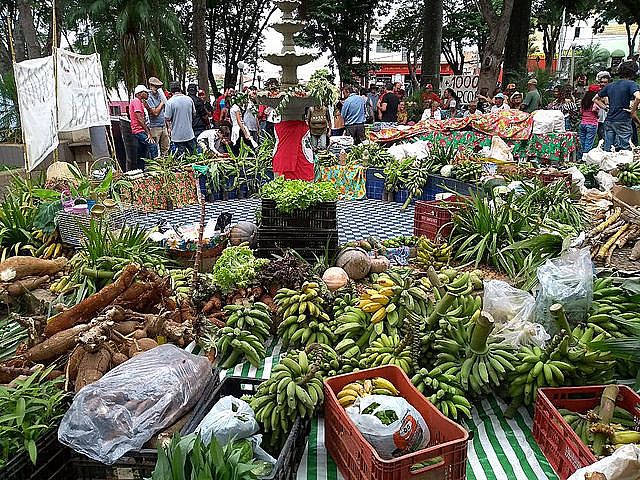A court suspended on Friday, Nov. 30, the execution of an eviction warrant of the old Ariadnópolis Mill, in southern Minas Gerais, Brazil, where approximately 450 families – more than 2,000 people – have been living and working for 20 years. The area is occupied by members of the Landless Workers’ Movement (MST), which has been claiming since 1998 that the land should be expropriated for agrarian reform purposes.
A few weeks ago, an eviction warrant issued by judge Walter Zwicker Esbaille Junior, put the Quilombo Campo Grande camp in the city of Campo do Meio on alert and has mobilized activists and supporters in Brazil and the world.
“There was solidarity and resistance, many friends came together, and we put on a lot of work [to fight the eviction]. We know it’s a partial victory, but we are celebrating it. In times like these we are living right now, every victory has to be celebrated,” said Tuira Tule, a coordinator of the MST regional offices in southern Minas Gerais state.
Tule said “this victory is the result of many hands, a true victory of the working class, who was here in this land, who sent more than a thousand letters to the judge, more than 500 letters to the appellate judge in the Minas Gerais court, the support from several churches, partners here in the area, in the state, and all over Brazil, support from artists, personalities, and also the support through Catarse (crowdfunding platform), with contributions from 537 people.”
The MST leader believes last Friday’s court decision “proves our people’s agrarian reform project is legitimate.”
The eviction warrant was requested by the bankrupt Companhia Agropecuária Irmãos Azevedo (CAPIA), who used to run the mill Usina Ariadnópolis Açúcar e Álcool S/A. After pending trial for five years, the case re-emerged in 2016, after CAPIA’s reorganization plan was approved, 16 years after the company’s bankruptcy was declared.
The camp
The area of the old Ariadnópolis Mill has roughly 10,000 acres. Five eviction warrants have been issued since the land was first occupied by MST small farmers, but activists and supporters were always able to mobilize and resist.
In 2017-2018, according to the MST, the landless families in the Quilombo Campo Grande camp produced more than 8,500 coffee sacks, 55,000 corn sacks, and 500 metric tons of beans, as well as a diversified production of greeneries, vegetables, produce, chicken, cattle, and milk.
Over the years, the occupation has also established partnerships with local organizations and institutions that encourage crop production, promote people’s education, and improve the infrastructure where the families live.




